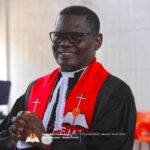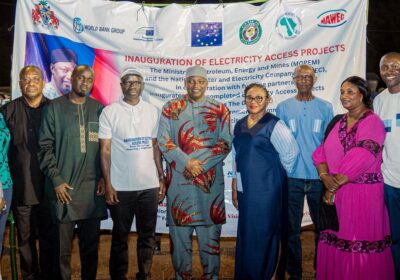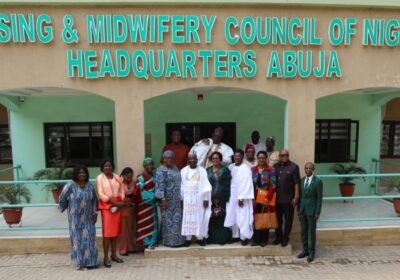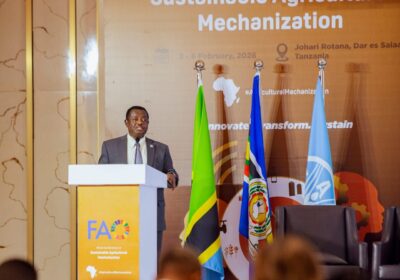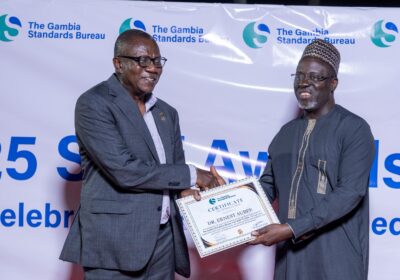94th Ordinary Session of ECOWAS Council of Ministers Meeting Opens in Abuja, Restates Commitment to Regional Stability, Economic Integration and Security.
By Raymond Enoch
The 94th Ordinary Session of the ECOWAS Council of Ministers commenced today in Abuja, bringing together top regional leaders to chart a forward course for the Economic Community of West African States (ECOWAS) amidst a complex and evolving geopolitical and economic landscape. The two-day session, which runs from June 19 to 20, 2025, is expected to address critical issues relating to economic integration, political stability, and security cooperation across West Africa.
The session opened with speeches by Ambassador Yusuf Maitama Tuggar, Nigeria’s Minister of Foreign Affairs and current Chair of the ECOWAS Council of Ministers, and H.E. Dr. Omar Alieu Touray, President of the ECOWAS Commission. Both leaders emphasized the urgent need for regional unity, pragmatic economic policy, and renewed political commitment to tackle shared challenges.
According to Ambassador Tuggar, “ECOWAS iwas Born Out of a desire for Economic Decolonization”
and reflecting on the historical purpose of ECOWAS. he said that “This session represents another significant milestone in our journey towards attaining the objectives of our Regional Economic Community,” he stated. “It also comes at a time of critical reflection and decisive action.”
Ambassador Tuggar underscored that ECOWAS was not merely an economic arrangement, but a political project born out of Africa’s struggle against neo-colonialism. “If newly independent African countries isolate themselves, they remain perpetually dependent on their former colonial masters,” he said. “But through free intra-regional trade and joint infrastructure development, we can achieve collective self-reliance and chart our own destinies.”
He emphasized the importance of the youth demographic, calling on Member States to remember the founding principles of ECOWAS and focus on long-term economic emancipation.
Tuggar also touched on the ambitious agenda of the session, including discussions on economic integration, health, education, agriculture, infrastructure, and institutional reform. Calling for a spirit of “collegiality, compromise, and flexibility,” he urged ministers to ensure that their deliberations are matched by actionable decisions.
Looking ahead to the West Africa Economic Summit (WAES), scheduled to begin on June 20, Ambassador Tuggar described it as a “watershed event” for private sector-driven growth. The summit will feature a “deal room” hosted by Nigeria’s Sovereign Wealth Fund and will attract a wide range of stakeholders — from startups to policy makers, investors, and development institutions. Heads of State will also attend, signaling the importance of the summit in unlocking the region’s economic potential.
“I urge all Council Members to attend the launch session and support this strategic initiative,” Tuggar said, encouraging swift deliberations so that the Council could reconvene the next day to adopt the final report ahead of the summit.
In his own address, H.E. Dr. Omar Alieu Touray, President of the ECOWAS Commission, welcomed ministers and delegates and expressed appreciation to President Bola Ahmed Tinubu and the Nigerian government for their hospitality and steadfast support of regional integration.
Dr. Touray presented a comprehensive overview of ECOWAS’ ongoing initiatives across trade, industry, security, and political transitions. At the core of his message was a resounding call to dismantle non-tariff barriers (NTBs), which he described as persistent impediments to regional economic growth.
“I personally travelled by road from Lagos to Cotonou to observe the conditions at the Seme/Krake border,” he revealed. “The situation I witnessed underscores the urgent need to eliminate NTBs, which are undermining our efforts at economic integration.”
He explained that the Council would review key outcomes from the recent Joint Meeting of ECOWAS Ministers of Trade and Industry. These include proposals to advance the ECOWAS Trade Liberalisation Scheme (ETLS), harmonize standards across the region through the ECOWAS Quality Infrastructure Scheme, and ratify international agreements such as the WTO Fisheries Subsidy Agreement and the AfCFTA.
The session will also review cooperation agreements on competition and consumer protection within ECOWAS, updates on the West Africa-European Union Economic Partnership Agreement (WA-EU EPA), and a regional response to the new U.S. tariff policy.
“Progress has been made,” Dr. Touray assured. “But we must accelerate implementation. Our people expect results, not just rhetoric.”
On the regional security front, Dr. Touray reported encouraging developments, especially ongoing discussions with Mali, Burkina Faso, and Niger on a joint framework for tackling terrorism and violent extremism. He emphasized ECOWAS’ commitment to rebuilding trust and facilitating dialogue with transitional governments, including Guinea, where political consultations are gaining renewed momentum.
As West Africa faces converging crises — from insecurity in the Sahel to economic



